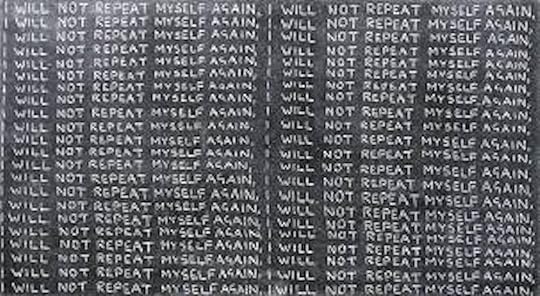Know the Truth or Repeat the Trauma

One of the popular ideas in the Higher Conscious movement revolves around the now. The past is past, the future is yet to come, the only reality is this moment, so embrace it.
This idea stands in sharp contrast to the psychoanalytic insight that the past isn’t history; that we carry our past with us wherever.
On one level this simply means that our past experiences mould our present ways of interacting with the world. That our current actions are a type of encyclopedic record of our past. So, if we want to know something about our past experiences, we can look at our present (our current relationships, fears, and desires) and indirectly discern what we can’t directly recall.
Yet there is another dimension to this saying that the past isn’t history. One that is more disturbing than the insight that echoes of our past ruminate in our present. It is the reality that many of us substantially repeat our past traumas again and again.
Whether it be in dreams, relationships or everyday circumstances, we can find ourselves condemned to re-enacting a painful past. We might, for instance, seek out partners who are distant from us, dislike us, or cause us damage. Indeed, if our partner doesn’t manifest these traits, we can find ourselves losing interest in them, or acting in ways that provoke them to play the sinister part. In psychoanalytic theory such acts are manifest early relational experiences that we are likely oblivious to. Experiences that have been long forgotten in the register of the conscious, but that are etched into the vinyl of our unconscious.
This phenomenon – called Repetition Compulsion – describes the way in which our past invades our present in an overwhelming way, causing us to rewrite the drafts of our life again and again with only slight changes in the characters and context.
If we are burdened by this ailment we come to resemble players in a theatrical performance that plays night after night. A drama that involves occasional changes in the actors and set design.
Part of the psychoanalytic process involves replaying these early traumatic experiences in the theatre of the clinic. Replaying them in such a way that they become visible to us, and where a different outcome can occur. The analyst becomes a stand-in for some long lost other from our past – via transference – but they don’t conspire with us to make the situation play out like before. Instead they help introduce difference into the repetition, a difference that helps the patient find freedom from the eternal recurrence of the same.
It has often been noted that Repetition Compulsion operates in society. The famous saying, “Those who do not learn history are doomed to repeat it,” captures this well.
The more we attempt to avoid a confrontation with the dark elements of our past (individually and communally), the more enslaved we become to them. If we are not able to bring the truth of our inmost being into the light of day we remain bound to our traumas. Prisoners of our past. Condemned to share the same type of curse that befell Sisyphus.
In contrast, if we can bear to know the truth, then the truth shall set us free.
By confronting the truth we find freedom from our enslavement to compulsive repetition. We’ll still repeat the past because the past remains a part of us, but the repetition will allow space for difference, novelty, and the incoming of the unforeseen. More than this, it will free us from the worst parts of our past.
Just as evolution itself is a form of repetition in difference – a species produces the same species, but with slight alterations that become evident over time – so the society of tomorrow, that we build today, will have elements from yesterday. But, if we can face the darkest parts of our history and learn from them, we will find ourselves better equipped to retain the best from the past, abandon the worst, and build a better future.
Peter Rollins's Blog
- Peter Rollins's profile
- 314 followers



